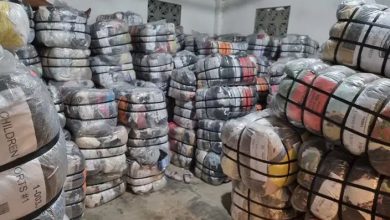Requirements And Cost Of Starting A Charcoal Business In Kenya
With the growing demand for charcoal, starting a charcoal business in Kenya presents an opportunity to not only meet the energy needs of the population but also contribute to the country’s economic development.
The charcoal business in Kenya involves the production, distribution, and sale of charcoal as an alternative energy source. Charcoal is derived from the carbonization of wood, typically from trees such as acacia, eucalyptus, and Prosopis, which are abundant in Kenya. This process involves heating the wood in a controlled environment with limited oxygen, resulting in the conversion of the wood into charcoal.
Kenya’s reliance on charcoal stems from the limited access to electricity and the high cost of other energy sources. It is estimated that over 80% of Kenyan households depend on charcoal for their cooking and heating needs. This widespread demand has created a significant market for charcoal producers and retailers, making the charcoal business a viable entrepreneurial venture.
The charcoal value chain in Kenya involves several key players, including charcoal producers, transporters, wholesalers, and retailers. Producers are responsible for the carbonization process and often operate in rural areas where trees are readily available. Transporters move the charcoal from production sites to urban centers, where wholesalers purchase large quantities for distribution. Retailers, in turn, sell charcoal to individual consumers in local markets, roadside kiosks, and other retail outlets.
While the charcoal business offers lucrative opportunities, it also faces challenges related to environmental sustainability. The indiscriminate felling of trees for charcoal production has contributed to deforestation, soil erosion, and carbon emissions. However, efforts are being made by the government and various organizations to promote sustainable charcoal production practices, such as reforestation initiatives and the use of energy-efficient stoves.
In this article, we will guide you through the process of starting a charcoal business in Kenya, this comprehensive guide will equip you with the knowledge and tools to succeed in the charcoal business includes while contributing to Kenya’s sustainable development goals.
Where Can I Get The Raw Materials For Making Charcoals In Kenya?
In Kenya, the primary raw material for charcoal production is wood. Here are some options for obtaining raw materials:
1. Sustainable Forestry: Collaborate with sustainable forestry companies that practice responsible tree harvesting. This ensures the replenishment of trees and minimizes deforestation, promoting long-term environmental sustainability.
2. Tree Plantations: Establish partnerships with tree plantation owners or invest in your plantation to have a consistent supply of raw materials. This approach helps reduce pressure on natural forests and ensures a sustainable source of wood.
3. Timber Industry By-Products: Collaborate with timber mills and sawmills to obtain waste wood, sawdust, or wood shavings. This not only reduces waste but also provides an additional source of raw materials.
4. Agroforestry Initiatives: Explore partnerships with agroforestry projects where farmers grow trees alongside their crops. By purchasing their excess wood, you support local communities and contribute to sustainable farming practices.
What Are The Environmental Concerns Associated With Charcoal Production In Kenya?
While charcoal production is a profitable business, it can have adverse environmental impacts if not conducted responsibly. It is necessary to address these concerns to ensure sustainable practices and protect the environment. The key environmental concerns associated with charcoal production in Kenya include:
1. Deforestation: Unsustainable tree harvesting for charcoal production contributes to deforestation, which leads to the loss of biodiversity, soil erosion, and adverse climate impact. It is essential to prioritize sustainable forestry practices and engage in reforestation initiatives.
2. Air Pollution: Traditional charcoal production methods, such as the traditional earth mound kiln, produce significant amounts of smoke and air pollutants. Encourage the use of modern and more efficient kilns that minimize smoke emissions and promote cleaner production techniques.
3. Carbon Emissions: Charcoal production involves the release of carbon dioxide (CO2) into the atmosphere, contributing to climate change. Adopting sustainable forestry practices, promoting efficient kilns, and exploring carbon offset initiatives can help mitigate the carbon footprint associated with the charcoal industry.
4. Water Resource Depletion: Charcoal production often requires significant amounts of water for processing and cooling. Proper water management practices should be implemented to avoid excessive water consumption and protect local water sources.
5. Soil Degradation: Improper waste disposal and unsustainable harvesting practices can lead to soil degradation, impacting agricultural productivity and ecosystem health. Implement measures such as proper waste management and soil conservation techniques to minimize soil degradation.
To address these environmental concerns, the Kenyan government has implemented regulations and initiatives to promote sustainable charcoal production.
Entrepreneurs entering the charcoal business should prioritize sustainable practices, adopt cleaner technologies, and actively participate in reforestation and conservation efforts.
What Are The Risks Involved In Charcoal Business?
As with any business venture, the charcoal industry in Kenya presents certain risks and challenges. It is essential to be aware of these potential risks and take appropriate measures to mitigate them. The key risks involved in the charcoal business include:
1. Market Fluctuations: The demand for charcoal can be influenced by various factors, including economic conditions, fuel alternatives, and government policies. Fluctuations in market demand can impact sales and profitability. Diversifying your product range and establishing strong customer relationships can help mitigate the risk of market fluctuations.
2. Regulatory Compliance: Failure to comply with regulations can lead to fines, closures, and damage to your reputation. Stay informed about the evolving regulatory landscape and ensure strict adherence to legal requirements.
3. Supply Chain Disruptions: Dependence on a single source for raw materials or unreliable transporters can lead to supply chain disruptions. Establishing multiple suppliers, maintaining good relationships with transporters, and having contingency plans in place can help mitigate the risk of supply chain disruptions.
4. Fire Hazards: Charcoal production involves processes that can pose fire hazards. It is essential to implement proper safety measures, train employees on fire prevention and firefighting techniques, and have adequate fire safety equipment in place.
5. Price Volatility: The cost of raw materials, transportation, and labor can fluctuate, impacting production costs and profit margins. Conduct thorough market research, negotiate favorable contracts with suppliers, and have contingency plans to manage price volatility.
Mitigating these risks requires careful planning, continuous monitoring of market conditions, strong relationships with suppliers and customers, and a proactive approach to compliance and safety measures.
What Is The Potential Profitability Of A Charcoal Business In Kenya?
The profitability of a charcoal business in Kenya can vary based on several factors, including market demand, operational efficiency, production costs, and competitive pricing. While it is challenging to provide an exact profitability estimate due to the nature of the market, the charcoal industry in Kenya has shown potential for attractive returns on investment.
However, to maximize profitability, focus on the following strategies:
- Efficient Production: Implement modern and efficient charcoal production techniques to optimize resource utilization, minimize waste, and reduce production costs.
- Cost Management: Continuously monitor and manage production costs, including raw materials, labor, equipment maintenance, and transportation. Seek opportunities to streamline operations and identify cost-saving measures.
- Market Differentiation: Differentiate your charcoal products by offering high-quality, sustainably produced options. Establish a strong brand presence, build customer trust, and cultivate long-term relationships with buyers.
- Value-Added Products: Explore opportunities to diversify your product line by offering value-added charcoal products such as briquettes, activated charcoal, or charcoal-based products for specific industries like agriculture or cosmetics. These value-added products often command higher prices and can increase profitability.
- Market Expansion: Identify and target niche markets or untapped regions within Kenya for your charcoal products. Conduct market research to understand consumer preferences and tailor your products accordingly.
- Marketing And Branding: Invest in effective marketing and branding strategies to create awareness, build a strong brand reputation, and attract a loyal customer base. Use both online and offline channels, including social media, websites, local advertisements, and partnerships with retailers or wholesalers.
While the profitability of a charcoal business can be promising, also keep in mind the long-term sustainability of the industry.
Adopting environmentally responsible practices and contributing to local community development can enhance the overall value proposition of your business and ensure long-term success.
What Are The Best Locations To Start A Charcoal Business In Kenya?
The location of your charcoal business can impact its success. Consider the following factors when selecting an ideal location:
- Proximity To Raw Materials: Choose a location close to reliable sources of raw materials, such as forests, tree plantations, or timber mills. This reduces transportation costs and ensures a steady supply of quality wood.
- Access To Markets: Select a location that provides easy access to target markets, including urban centers, towns, and areas with high charcoal consumption. Consider transportation infrastructure, proximity to major road networks, and availability of distribution channels.
- Environmental Considerations: Go for areas where sustainable forestry practices are encouraged, and there are initiatives in place for reforestation and environmental conservation. This ensures the long-term availability of raw materials and supports responsible charcoal production.
- Regulatory Compliance: Ensure the chosen location aligns with the regulatory requirements for charcoal production and has the necessary permits and licenses. Avoid areas with restrictions on deforestation or unsustainable charcoal production.
- Infrastructure And Utilities: Assess the availability of basic infrastructure, such as electricity, water supply, and transportation facilities. Reliable access to utilities and transportation networks can streamline operations and reduce costs.
What Equipment Do I Need To Start A Charcoal Business In Kenya?
To start a charcoal business in Kenya, you will require certain equipment to facilitate the production process. The specific equipment needed will surely vary depending on the scale of your operations and the production techniques employed. Here is some essential equipment for charcoal production:
1. Charcoal Kilns: Kilns are used to convert wood into charcoal through the process of carbonization. Different types of kilns are available, including traditional earth mound kilns, metal kilns, and modern retort kilns. Choose a kiln that suits your production capacity, efficiency requirements, and environmental considerations.
2. Chippers Or Grinders: Chippers or grinders are used to process wood logs or waste into smaller, manageable pieces suitable for carbonization. They help improve efficiency and ensure uniformity in charcoal production.
3. Drying Chambers: Drying chambers are used to reduce the moisture content of wood before carbonization. Proper drying is crucial to optimize the carbonization process and ensure high-quality charcoal production.
4. Weighing Scales And Measuring Tools: Accurate weighing scales and measuring tools are essential for precise measurement of raw materials, additives, and final product packaging.
5. Storage Facilities: Adequate storage facilities are necessary to store raw materials, processed wood, and finished charcoal. Ensure proper ventilation and protection from moisture to maintain charcoal quality.
6. Safety Equipment: Fire extinguishers, safety gloves, masks, and protective clothing are essential to ensure the safety of workers and prevent accidents during the production process.
7. Transportation Vehicles: Depending on the scale of your operations, you may need trucks or vans for transporting raw materials, finished charcoal, and other supplies.
8. Packaging Materials: Invest in packaging materials such as bags, sacks, or containers suitable for charcoal storage and transportation. Ensure the packaging is sturdy, moisture-resistant, and properly labeled with product information.
9. Maintenance Tools: Tools for routine maintenance and repair of equipment, such as wrenches, screwdrivers, and lubricants, are necessary to ensure smooth operations.
Regular maintenance and calibration of the equipment are essential to prolong its lifespan and maximize its performance.
What Are The Mistakes To Avoid When Starting A Charcoal Business In Kenya?
By avoiding common mistakes, you can increase your chances of success. Here are some mistakes to avoid:
1. Lack Of Market Research: Failure to conduct thorough market research can lead to incorrect pricing, inadequate understanding of consumer preferences, and poor marketing strategies. Invest time and resources in understanding the market dynamics, competition, and customer demands.
2. Ignoring Environmental Regulations: Non-compliance with environmental regulations can lead to legal consequences, fines, and damage to your reputation. Stay updated on the regulations about charcoal production and ensure strict adherence to sustainable practices.
3. Poor Financial Planning: Inadequate financial planning, underestimating costs, or overestimating revenue can lead to financial instability. Develop a detailed financial plan, including realistic revenue projections, comprehensive budgeting, and contingency plans for unforeseen expenses.
4. Neglecting Quality Control: Producing low-quality charcoal can harm your reputation and hinder customer loyalty. Implement quality control measures at every stage of the production process to ensure consistent and high-quality charcoal.
5. Inefficient Supply Chain Management: Relying on a single supplier or transporter without backup options can lead to supply chain disruptions. Establish multiple sources of raw materials and build relationships with reliable suppliers and transporters to mitigate risks.
6. Inadequate Marketing Efforts: Neglecting marketing and branding activities can limit your business’s visibility and growth potential. Develop a robust marketing strategy, leverage digital marketing platforms, and invest in promotional activities to reach your target audience effectively.
7. Poor Customer Relationship Management: Failing to build strong relationships with customers can impact repeat business and referrals. Provide excellent customer service, address customer concerns promptly, and actively seek feedback to improve your products and services.
8. Lack Of Long-Term Sustainability Focus: Neglecting environmental sustainability and community development can hinder long-term success. Incorporate sustainable practices, engage in reforestation initiatives, and contribute to local communities to enhance your business’s overall value proposition.
By avoiding these mistakes and implementing best practices, you can establish a solid foundation for your charcoal business.
How Do I Find Reliable Suppliers And Buyers For My Charcoal Business In Kenya?
Here are some strategies to help you find reliable suppliers and buyers:
- Networking: Attend industry trade fairs, conferences, and events to connect with potential suppliers and buyers. Networking provides an opportunity to meet industry professionals, learn about market trends, and build relationships.
- Local Associations And Cooperatives: Engage with local associations or cooperatives related to the charcoal industry. These organizations can provide valuable contacts, information, and support for your business.
- Online Platforms: Online platforms, such as business directories, industry-specific forums, and social media groups, can be used to connect with suppliers and buyers.
- Supplier Audits: Conduct thorough audits and due diligence to assess the reliability, quality, and sustainability practices of potential suppliers. Visit their facilities, check their certifications, and request samples to evaluate the quality of their charcoal products.
- Local Communities And Forestry Departments: Engage with local communities and forestry departments to establish relationships with sustainable sources of raw materials. Collaborating with local communities not only ensures a reliable supply of raw materials but also contributes to community development and environmental sustainability.
- Word-of-Mouth Referrals: Leverage word-of-mouth referrals from industry contacts, business partners, or customers to find reliable suppliers and buyers. Recommendations from trusted sources can help you identify reputable stakeholders in the charcoal industry.
- Build Trust And Maintain Relationships: Once you identify reliable suppliers and buyers, focus on building trust and maintaining strong relationships. Deliver your promises, communicate effectively, and provide excellent customer service. Regularly assess and address any concerns or issues that may arise to ensure long-term partnerships.
Remember, establishing reliable supplier and buyer relationships is an ongoing process that requires continuous effort, effective communication, and a commitment to quality and sustainability.
How Much Is A Sack Of Charcoal In Kenya?
As of the time of writing this article, the average price range for a sack of charcoal in Kenya is between Ksh 1,500 to Ksh 3,000 (Kenyan Shillings). However, it is important to note that these prices are subject to change and may vary in different regions or markets within Kenya.
Factors that can influence the price of charcoal include:
- Seasonality: Charcoal prices may fluctuate throughout the year, with higher prices often observed during the rainy season due to reduced charcoal production and transportation challenges.
- Quality: High-quality charcoal, produced using sustainable practices and efficient kilns, may command a higher price compared to lower-quality charcoal.
- Location: Prices can vary based on the region and accessibility to raw materials, markets, and transportation routes. Remote areas with limited access to charcoal supply may experience higher prices.
- Market Demand: Fluctuations in market demand can impact charcoal prices. Increased demand during festivals, holidays, or cultural events may lead to higher prices.
- Government Regulations: Changes in government policies, such as taxation or restrictions on charcoal production or transportation, can influence prices.
How Much Capital Do I Need To Start A Charcoal Business In Kenya?
While it is challenging to provide an exact figure without specific details, a rough estimate for starting a small to medium-sized charcoal business in Kenya can range from Ksh 500,000 to Ksh 2,000,000 (Kenyan Shillings). This estimate includes expenses for equipment, infrastructure setup, raw materials, licensing, marketing, operational costs, and working capital.
It is recommended to develop a comprehensive business plan that outlines all the necessary components and estimated costs. This will help you determine the specific capital requirements for your charcoal business.
Summary Of How To Start A Charcoal Business In Kenya?
Starting a charcoal business in Kenya involves several key steps. By following these guidelines, you can establish a strong foundation for your venture:
1. Research And Business Plan: Begin by conducting thorough market research to understand the demand, competition, and potential profitability of the charcoal business. Create a comprehensive business plan outlining your goals, target market, marketing strategies, financial projections, and operational processes.
2. Legal Considerations: Register your business with the relevant government authorities and obtain the necessary licenses and permits. Comply with all legal requirements to ensure smooth operations and avoid any penalties or closures.
3. Funding: Assess your financial requirements and explore various funding options, such as personal savings, bank loans, grants, or partnerships. Create a detailed budget that includes costs for raw materials, equipment, transportation, labor, marketing, and operational expenses.
4. Supply Chain Management: Develop a reliable supply chain by establishing relationships with raw material suppliers, transporters, and distributors. Ensure a consistent and quality supply of raw materials to meet customer demands.
5. Marketing And Branding: Develop a strong brand identity for your charcoal business through effective marketing strategies. Utilize online and offline channels to promote your products, build customer loyalty, and expand your market reach.









